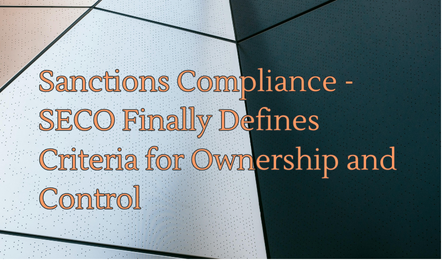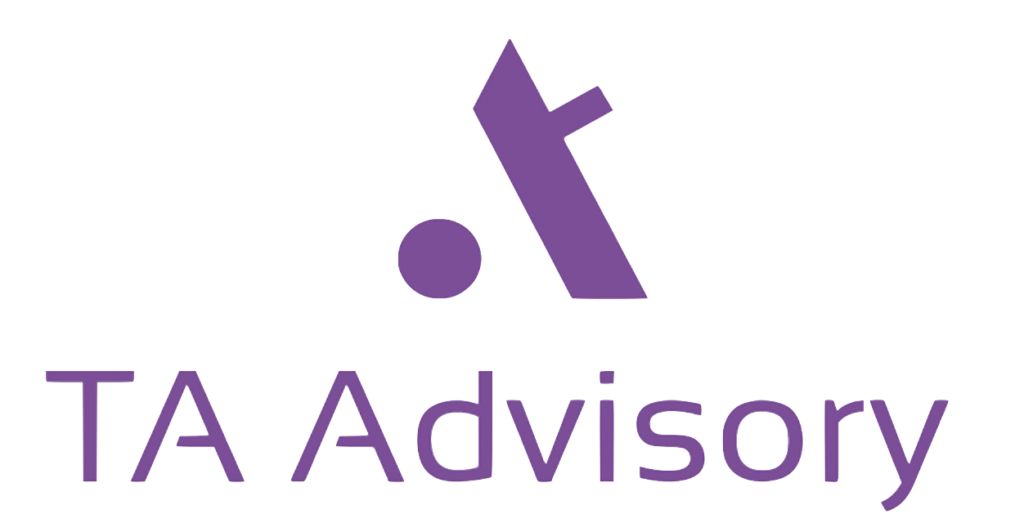Since the war in Ukraine began, numerous countries, including Switzerland, have taken measures and imposed sanctions against Russia. The sanctions and measures taken by Switzerland in connection with the war in Ukraine can be found in the Ordinance on Measures in Connection with the Situation in Ukraine (“Ordinance”). These include inter alia asset freezes and a ban on making assets available to sanctioned persons. To ensure that the sanctions can be applied successfully and provide clarifications, the State Secretariat for Economic Affairs (“SECO”) has issued guidance on the Ordinance, which was last updated on 13 June 2024.
1. Who is affected by the sanctions?
Art. 15 (1) of the Ordinance stipulates that funds and economic resources owned or directly or indirectly controlled by certain groups of persons shall be frozen.
This includes persons who:
a) are listed in the Annex to the Ordinance (Annex 8);
b) natural persons, companies and organisations acting on behalf of or on the instructions of the natural persons, companies and organisations referred to in letter a); and
c) companies and organisations that are owned or controlled by the natural persons, companies and organisations referred to in a) or b).
It is noticeable here that not only persons are listed directly are subject to sanctions, but also persons who are owned (e.g. company) or controlled by the sanctioned persons.
For a long time, Switzerland did not issue any definitions or guidance as to when one can speak of ownership of or control over certain persons (including companies). Usually, however, SECO was referring to EU established criteria for ownership and control. This has icreasingly led to legal uncertainty as well as excessive freezing of assets from Swiss banks.
However, it must also be mentioned that the excessive freezes are not only due to legal uncertainty in Switzerland, but also to secondary sanctions, for example from the United Kingdom or the USA.
2. How does the EU define ownership and control in connection with sanctions?
According to Art. 1 §5 of the EU Regulation (EC) N° 2580/2001 of the Council of 27 December 2001, included in Art. 55bis of the Sanction Guidelines of 4 May 2018, ownership of a company by a person is assumed by the EU if the person holds more than 50 % of the ownership rights or a majority shareholding.
As for the control, it can be defined by Art. 1 §6 a-h of the EU Regulation (EC) N° 2580/2001 according to which a person or entity can be considered as exercising control on the basis of the following criteria, namely:
a) the person or entity has the right or power to appoint or remove a majority of the members of the administrative, management or supervisory body of the legal person or entity
b) it has, solely through the exercise of its voting rights, appointed the majority of the members of the administrative, management or supervisory body of the legal entity or organisation for the current and previous financial year; or tion;
c) it alone holds the majority of the voting rights of the shareholders or members of the legal entity or organisation on the basis of an agreement with other shareholders or members of the legal entity or organisation;
d) it has the right to exercise the majority of the voting rights of the shareholders or members of the legal entity or organisation for the current and previous financial year. or members thereof;
e) it has the right to exercise a dominant influence over the legal entity or organisation by virtue of a contract concluded with it or by virtue of a provision laid down in its memorandum or articles of association, provided that the law to which the legal entity or organisation is subject permits it to be subject to such contracts or provisions;
f) it has the power to exercise a dominant influence over the legal entity or organisation by virtue of a contract concluded with it or by virtue of a provision laid down in its memorandum or articles of association. to such contracts or provisions;
g) it shall have the power to exercise the right to exercise a dominant influence within the meaning of point (d) without itself being subject to that right; it shall have the right to exercise the right to exercise a dominant influence within the meaning of point (d) without itself being subject to that right. right itself;
h) it has the right to use all or part of the assets of the legal person or organisation; it manages the business of the legal person or organisation;
i) it manages the business of the legal entity or organisation on a uniform basis with the preparation of consolidated financial statements.
Also, the several criteria identified by the European Commission in its Opinion of 19 June 2020 on Article 2 of EU Regulation N° 269/2014 should be considered to determine whether a legal entity is controlled by another entity, whether the latter “is able to and effectively asserts a decisive influence over the conduct of the other entity in question”, e.g.:
the power to appoint or remove a majority of the members of the administrative, management or supervisory body of such legal person or entity;
the fact of using all or part of the assets of a legal person or entity;
the fact of sharing jointly and severally the financial liabilities of a legal person or entity, or guaranteeing them;
the fact of having influence as regards corporate strategy, operational policy, business plans, investment, capacity, provision of finance, human resources and legal matters;
the fact of putting in place or maintaining mechanisms to monitor the commercial conduct of the legal person or entity;
other indications such as sharing a business address or using the same name which could cause third parties to have the impression that the two entities are in fact part of the same undertaking.
3. How should the concept of ownership of companies be interpreted in Switzerland?
According to the newly released interpretation guidance, SECO has stated that ownership of a company exists if a natural or legal person holds more than 50 % of the ownership rights in a company. Ownership rights held by several sanctioned natural persons, companies or organizations are generally aggregated. Finally, it should be noted that not only direct ownership is covered, but also indirect ownership.
4. How is the concept of control over a company to be interpreted in Switzerland?
The interpretation of the concept of control of a company or organisation is more multifaceted than that of ownership. Firstly, it should be noted that control can be exercised by a natural person or a legal entity. However, control can also come about through an organisation or agreement between several shareholders or third parties.
The criteria, when a person has control over a company, were not exhaustively listed by SECO:
• Control over the Board of Directors by being able to de facto or formally appoint or dismiss it;
• There is a formal or de facto majority of voting rights in the company;
• A controlling influence is exercised over the company on the basis of a contract/deed/statutes; the person does not have to hold the right themselves, but can also exercise this through a third party;
• The person exercising control can control some or even all of the funds, for example by being able to earmark them for a specific purpose;
• The business of the company is managed by the person;
• The person is liable or guarantees for the financial liabilities of the company;
• The person has influence over the management of the company via a loan that the person has given to the company.
Only one of the criteria listed above must be met in order to be able to speak of control of the company by the relevant person/majority of persons.
5. What are the criteria for controlling in financial transactions?
If there is a well-founded suspicion at the time of the assessment that funds or economic resources have been officially transferred to third parties but the sanctioned person, company or organization still retains control over them, these funds or economic resources must be frozen. In these constellations of transfers of value to third parties, SECO has applied further criteria for the assessment:
• The close relationship (e.g. familial) between the sanctioned transferring person and the third party;
• The economic/professional independence of the third party from the transferring sanctioned person;
• The frequency of the benefit after the person was sanctioned compared to before;
• Agreements between the receiving third party and the transferring third party regarding the transfer of funds;
• Compliance with the arm’s length principle (according to this principle, transactions must take place under the same conditions as if they had been agreed between unrelated third parties in free competition under similar circumstances).
The relevant time of the value transfer may also have occurred before the implementation of the sanctions.
Concluding remarks
In updating its guideline on the interpretation of sanctions, SECO has kept very close to the EU’s existing interpretation of the terms. This is by no means a disadvantage, as on the one hand the proximity to the EU can ensure uniform implementation of the law and on the other hand Switzerland has finally achieved greater legal certainty with regard to the criteria for ownership and control. As a result of this update, it is to be expected that cases in connection with the freezing of assets can now be processed more clearly and, above all, more uniformly (also in relation to foreign countries), which can only benefit Switzerland as a financial centre.
If you would like to find out more about this topic or would like to request consultation, please contact us!
Sanctions
Against the backdrop of recent international developments, particularly those related to Ukraine and Russia, complex economic sanctions and new rules governing relations with sanctioned countries and their citizens continue to evolve. Asset freezes, commercial bans, airspace closures, and individuals falling under personal sanctions are all changing rapidly in response to foreign policy developments.



